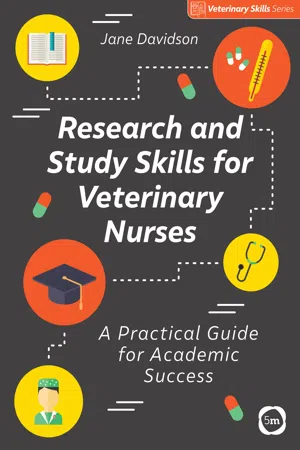Why we need academic courses in vet nursing
There have been many positive changes in the veterinary nursing world in recent years. In the UK, we have protection of the title veterinary nurse (from the Royal College of Veterinary Surgeons (RCVS) through their code of conduct for vets and nurses. We can use the post nominals RVN for registered veterinary nurse and we have a professional status as we have regulation, research and training standards that befit a profession.
Vet nursing education needs to reflect these changes and to improve the skills taught to advance our profession. We now have access to several courses in the UK and abroad. In the UK, there are two routes to entering the RCVS register to become a registered veterinary nurse (RVN) and further courses for advancing having done so. We can start with a diploma or degree to qualify, diploma students can then progress to a top up degree. And we can all proceed to master’s level qualifications, all within the veterinary nurse skills base.
Outside of the UK there are face-to-face and online courses in Ireland, the USA and Australia, New Zealand and South Africa, leading to a variety of vet nursing/vet tech qualifications. In the forthcoming book from J. Dugmore and K. Kissick So You Want to Be a Vet Nurse? (5M Publishing) you can find out more about the different ways to become a vet nurse in the UK and how to enter the register if you are an overseas qualified vet nurse.
Clearly there is a need and a desire for academically skilled nursing staff for veterinary work.
The question I have heard people ask occasionally is ‘why does the course have to be so academic?’. This is usually in response to either themselves or someone they know struggling to pass part of the course. It is important to bear in mind that it is a challenging course, as are all qualifications leading to a professional status. While the history of vet nurse education stems from lower-skilled care roles, such as traditional kennel maids, vet nurses are now multi-skilled medical practitioners. We can undertake medical and minor surgical procedures that require both competent practical skills and a level of theoretical understanding to be applied alongside those practical skills. Therefore, we need training courses that teach the theory and practical aspects of our roles, to improve the outcome for our patients.
This book is written to help people achieve the veterinary nursing qualification across all the assessment criteria and to take these learning and development skills into their career. Assessment styles and
learning needs are covered in the nine chapters and learning materials are available to download for free at the webpage below and are highlighted in this book by this sign
.
https://www.5mbooks.com/study-skills
Providing a place to see, understand and learn all the skills to achieve and progress in a way that all can access.
We also need academic skills to support our work in practice. The profession is advancing and we have access to valuable research that can improve what we do every day. We can improve patients’ care and our own self-care. To do this we need the skills to research and apply new information appropriately in our workplace. When you are asked to write a new standard operating procedure (SOP) where do you find that information? Is it reliable? And, how do you apply it to your team’s skill levels and access to equipment? If you are in a hurry head to Chapter Nine to see more on writing a SOP.
Every time we use evidenced research to support our actions we are starting to create a better workplace, for us and for our patients. If you carry out small projects regularly you will not lose your skills for researching and producing work.
For those studying to enter the register or for post-registration qualifications it is worth writing your own guide as to how best you study. The length of your course is long enough to find this out and while our study habits change over time it is good to have a personalized guide detailing what you have found beneficial previously. This book will introduce you to activities that can help expand your learning skills repertoire.
Exam nerves
I cannot go any further with this book without addressing a problem that most of us have dealt with at some point: exam nerves.
An exam assesses your work in a ‘performance’, by that I mean at a set time and place. While assignments and work-based learning have a deadline, you are free to do the work at a time and place to suit you as long as the deadline is met. Exams ask you to produce the best of your knowledge in a limited time to a set criteria. You are required not just to remember facts but to apply your knowledge to discuss cases, disease processes and more.
As with any performance most people have nerves. In fact, I will go so far as to say everyone has nerves. However, some people either do not admit to them or they have such good coping strategies they can use their nervous energy as a positive force. This is something I think we can all achieve, but most of us need a little help getting there.
Every day as a vet nurse we are faced with ‘performing’. We see patients in many different situations and are expected to use our knowledge to make timely decisions in their best interests. Clients ask us about disease processes, treatment options or even just how flea treatments work.
At work, it’s like we sit mini exams all day and we don’t get nervous.
This is possibly because we are in our comfort zone at work and we are confi-dent in what we are saying. Possibly because we perceive that a client or colleague is not trying to find out what we do not know so we are confident in talking about what we do know. Either way we have the skill within us to recall information and present it in a suitable fashion – we just need to be able to do that in an exam.
What do exam nerves do to our body and brain?
We usually see nerves or being nervous as a bad thing, yet our nervous system is always trying to help us. As you will need to study anatomy and physiology let us look at a little of it now.
The autonomic nervous system controls the spinal nerves that are connected to motor function (Aspinall, 2006). These are divided into two types, the sympathetic and the parasympathetic. These names help you remember what they do. The sympathetic nervous system helps you in times of stress. It prepares your body for our two means of basic survival – we either face up to whatever the threat is or we run away; often called ‘fight or flight’. This means our heart rate increases to push oxygen to our muscles so we are prepared for whichever route we take – fight or flight. Our respiratory rate increases to draw in more oxygen and stored energy is released.
We usually see nerves as a negative feeling. That increase in heart rate or breathing that we have not planned for can be scary. They are there to try to help our bodies cope with stress, and you can use this to your advantage – use that energy release for your benefit.
Preparing for being nervous
As the autonomic nervous system is not under conscious control it can feel a little overwhelming to have physical changes take place that we have not consciously chosen. What can you do to prepare for this?
An exam is a stressful situation. Even when you have revised and prepared and feel confident, you can still get nervous. That means you are likely to feel some of the sympathetic nervous system actions. This is completely normal. It is not a sign you are unprepared or have not revised enough. It is just your body reacting to an unusual situation. Recognising this helps you accept the changes and see them as a normal part of sitting an exam.
The first step is to acknowledge that you might get nervous.
Some people never feel comfortable with the physical changes that occur. This can be for many reasons and it can stop them performing well in exams. If you feel that is you then I have some strategies to help you.
How to make nerves help us
Use your anatomy revision to help you. As a veterinary nurse, you will be able to understand that your sympathetic nervous system is trying to help you. If you relax about the changes that can occur, it helps you and if you distract yourself it can also help. You are going to have a lot to do on an exam day so distracting yourself will probably be quite easy. Finding the venue, making sure you have your paperwork or identification to register and/or log in. This will all keep you busy. You may also find an information ‘hook’ to help you focus on what you can recall rather than worryin...







